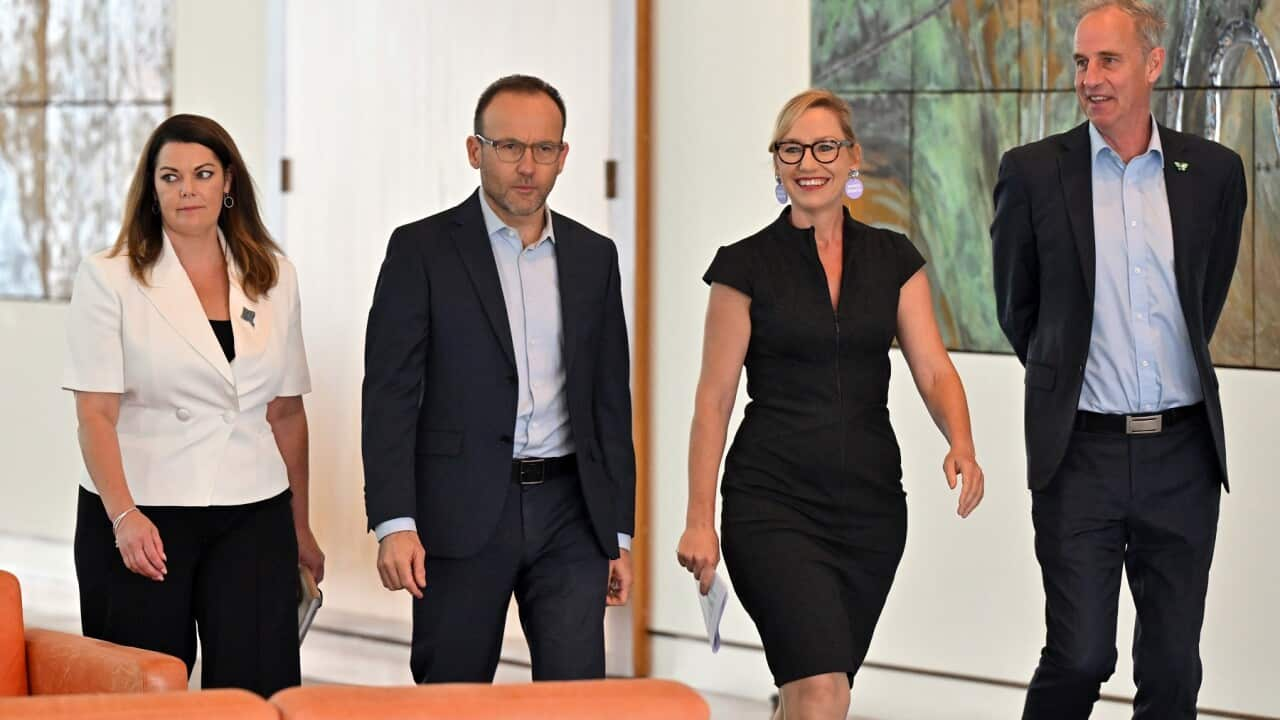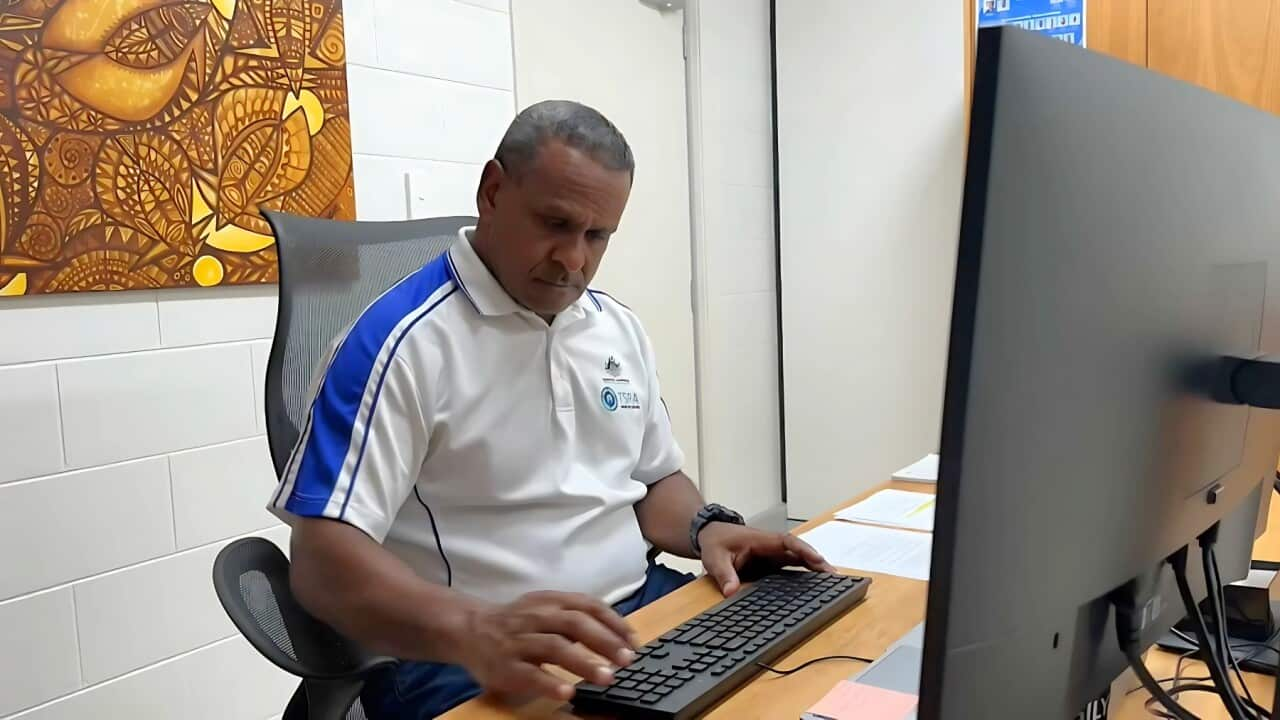TRANSCRIPT
In the end, being a politician is a job.
The process is a bit different - you get voted in rather than putting in an application and doing an interview.
And there's no guarantee you'll be employed for more than a few years at a time.
Professor Luke Beck from Monash University says like every job, there's criteria for who is eligible.
"The Constitution sets out some basic rules around qualification for members of parliament, and importantly, disqualifications for members of parliament. The basic rule is you have to be 18 years of age and an Australian citizen. But then there are some disqualifications, and in recent years, we have seen some of those play out."
There are only a few things that disqualify someone - you can't be a public servant, have committed treason, be under sentence or waiting for sentencing of an offence that has a penalty greater than 12 months, be an undischarged bankrupt, or have any allegiance to a foreign power.
That last bit is the tricky part - because it disqualifies dual citizens.
Starting in 2017, 15 MPs and Senators were caught up in what's called the Section 44 saga, named after the bit of the constitution that outlines what disqualifies you from nominating as a candidate.
Professor Beck says it wasn't intentional.
"What made it more complicated was that in most of these cases, these people did not know that they were citizens of the UK and New Zealand, which were the two common ones because whether you're a citizen of a foreign country basically depends on the law of that foreign country, and so you might effectively inherit a foreign citizenship without you ever realizing."
Since the saga almost a decade ago, no one else has been caught out under section 44 - although it does come up time to time in Parliament.
Whilst for some countries it's easy to renounce citizenship, for other's that's not the case.
Like for Independent Senator Fatima Payman. She was born in Afghanistan, and despite approaching the embassy in 2021 to renounce her citizenship her request wasn't processed before the Taliban regained power.
Since then, Senator Pauline Hanson has called for the government to look into her citizenship status.
Professor Beck says you're not automatically disqualified if your citizenship hasn't been formally renounced.
"The High Court has said that you have to take all reasonable steps to renounce your foreign citizenship before nominating unless that's for some reason effectively impossible to do. Either because that foreign country doesn't allow renunciation, in which case you have to effectively write a letter saying, even though legally I'm not allowed to pronounce, I nevertheless hereby renounce. Or in say, a case like Afghanistan where it's just physically impossible to do so. If there's some level of impossibility to renounce, then in that those kinds of situations, having taken all reasonable steps before nominating is sufficient."
These rules seem a bit old fashioned - and they can only be changed by a referendum since they're part of the constitution.
Professor Beck says there's a reason for them.
"The rationale for these is slightly different. The common thread is that so that all members of parliament have a sole loyalty to Australia and to their role as parliamentarian. So the logic being, if you're a dual citizen you might have a split allegiance. Now, in today's modern world, we probably don't think like that quite as much, but in the 1890s that's how people thought."
With bankruptcy, the idea is people might be more open to bribes, whilst public servants need to quit to ensure their loyalty is to their constituents instead of the executive government.
So with such a wide range of people who CAN, in theory, be politicians, who actually gets the job?
"Your typical federal politician, is a man, a white man in his late 40s or 50s, who has had a career either in the law or in politics or in finance before coming into parliament. That's not to say that we don't have a great deal more diversity in Parliament now than we have in the past. And so that typical picture we hope, is slowly changing over time."
That's Emma Dawson, Executive Director of progressive think tank Per Capita.
They've done some research into the demographics of Federal politicians.
As of the end of last year, 45 per cent are women.
Around 4 per cent are Aboriginal or Torres Strait Islander, slight above the general population.
Fewer politicians are from a non English speaking background compared to the rest of Australia, and fewer are born overseas.
And when it comes to age, it's pretty narrow. The vast majority are between 45 and 60 years old.
One of the biggest differences is in education - politicians are almost three times more likely to have a tertiary qualification.
Ms Dawson says that's a bit concerning.
"When we look at what those qualifications are, a lot of them are in law or economics or fields that are directly relevant to law making, to legislation and to understanding and managing the economy. And so there is a fear among some people that being a politician has become a profession, rather than a representative act that one does on behalf of the community."
To run a campaign you need both time and money.
If you're running as part of a political party, you need to win pre-selection to be included on the ballot paper.
That can take years of work to get the support within the local branch, through volunteering for the party and building up your standing within the community.
For independents, you need to have a lot of money behind you to run a campaign, and usually a big group of people who will volunteer to help.
Ms Dawson says that's an additional barrier.
"It's not cheap to run a campaign for parliament. If you think about what's required to build that profile in your community, to campaign for months at a time, to try to take a seat from a sitting politician, you really need to have some independent source of income in order to be able to do that. If you're relying week to week on a paycheck, that's not something that's going to be open to you."













